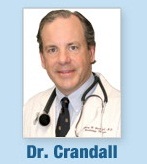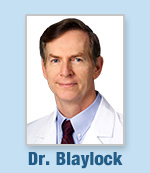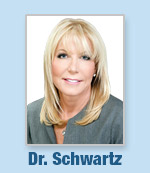3 Tips Heart Doctors Share with Their Friends
Monday, March 2, 2015
By Danielle C. Tworek, NASM CPT, WLS, Nutritionist
Wouldn’t life be simple if your best friend was also a cardiologist? Those little tidbits of advice that your own doctor might forget to mention are less likely to be missed in casual conversation among friends.
So, what would your friend tell you if he/she was also a heart doctor?
Eat the right kind of fish. You keep reading those headlines and even getting advice from your own doctor: eat more fish. But simply eating more fish isn’t enough – it’s got to be the right kind of fish. You can’t simply add tilapia and shrimp to your menu twice a week and enjoy the healthy benefits. These types of fish are extremely low in omega-3s – the fatty acids that are shown to lower triglycerides and reduce inflammation. To get the most out of your fish intake, select types that are known to be high in omega-3, such as tune, salmon, herring and anchovies.
Tone up. It seems like everyone knows that cardiovascular exercise is good for your heart. What many people do not know is that strength training boosts heart health as well. Building and sustaining muscle mass revs up your metabolism, keeping your blood pressure and cholesterol levels in check. Adding just 15 minutes a day of lightweight or bodyweight exercises offers immense benefits.
Keep your job in check. If you rate your job as stressful, you are twice as likely to die from heart disease compared to someone who doesn’t find their job stressful. Often, job pressure is self-imposed. Take a look at your work and your home life, if you don’t see balance, it’s time to put things in a different order – you should come first. Get out of the office for lunch, leave work on time in the evenings and don’t skimp on sleep to finish up reports at home. Keep work at work.
 Of course it takes more than these three habits to boost and maintain your heart health. All the other tips your doctor and other health experts suggest are important too – a diet rich in a variety of fruits and vegetables, routine exercise, plenty of quality sleep and stress-management. Of course it takes more than these three habits to boost and maintain your heart health. All the other tips your doctor and other health experts suggest are important too – a diet rich in a variety of fruits and vegetables, routine exercise, plenty of quality sleep and stress-management.
Dr. Chauncey Crandall, renowned cardiologist tells his patients, “There’s not just one superfood or physical activity that delivers comprehensive heart health. It is a variety of healthy habits that truly drive good health and support the heart.”
He also reminds patients that there is no such thing as a perfect diet. “Even if you always eat the right balance of foods, absorption may not occur in every instance – especially among adults over 50.” He continues, “Include high-quality supplements in your daily routine, these can help fill the nutritional gaps caused by aging or lifestyle choices.”
Dr. Crandall says that when it comes to heart health, older adults want to keep an eye on CoQ10, vitamin D and omega-3s. These nutrients are commonly overlooked in the everyday diet and diminish with age, making supplementation essential to good health and, in particular, a healthy heart.
|
|

| Prostate News |
Glucose News |
Cardio News |
|
 Doctor Explains One Thing You Should do For Your Prostate Every Morning Doctor Explains One Thing You Should do For Your Prostate Every Morning
Find Out Now
|
 Statistics show we now have a not-so-sweet epidemic on our hands Statistics show we now have a not-so-sweet epidemic on our hands
Find Out Now |
 The 2 Signs Your Heart is In Trouble The 2 Signs Your Heart is In Trouble
Find Out Now
|
|

|
|


| Dr. David Brownstein is a board-certified family physician, renowned holistic practitioner, and editor of Dr. David Brownstein's Natural Way to Health newsletter.
|

Dr. Chauncey Crandall is one of America’s most sought after Cardiologists, has performed over 40,000 heart procedures, and is editor of Dr. Crandall’s Heart Health Report.
|

| Dr. Russell Blaylock is a nationally recognized board-certified neurosurgeon, health practitioner, author, and lecturer and editor of Dr. Blaylock’s The Blaylock Wellness Report. |

| Erika Schwartz, M.D. is a leading national expert on wellness, disease prevention, and bioidentical hormone therapies and editor of Dr. Erika's Healthy Balance. |
|
|
